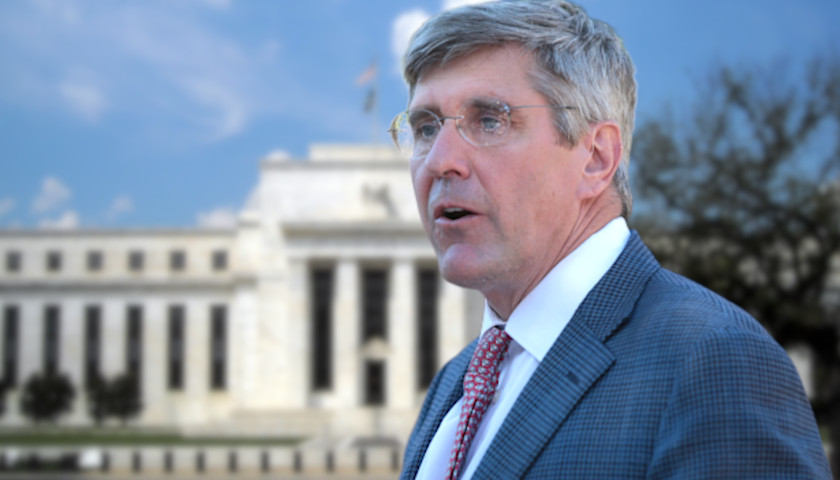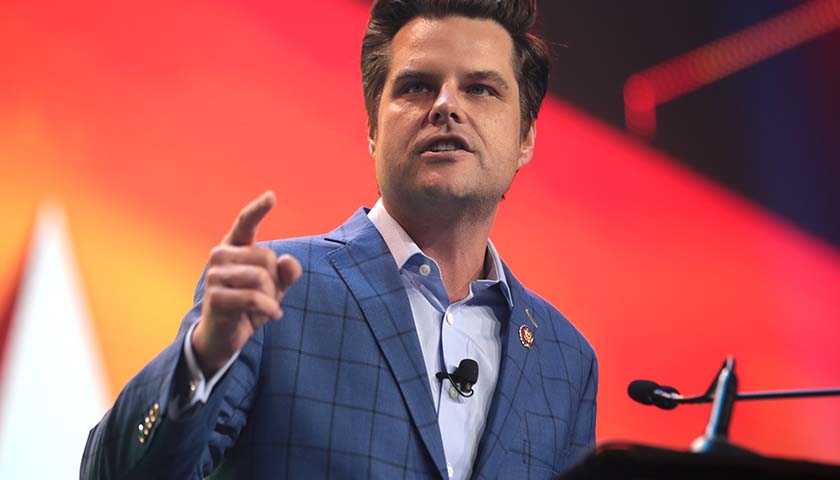by George Rasley
In late March, and partly at the urging of Larry Kudlow, Director of President Trump’s National Economic Council, the President announced his intention to nominate our good friend Stephen Moore to one of the two open seats on the Federal Reserve Board of Governors.
Conservatives, who believe in and support the Trump pro-growth economic agenda, were thrilled when the President announced Moore’s name – establishment “Wall Street before Main Street” types, not so much.
The announcement prompted protests from economists across the ideological spectrum, reported Politico’s Ben Schreckinger, with George W. Bush’s top economist, Harvard’s Gregory Mankiw, saying Moore lacked the “intellectual gravitas” for the job and warning that appointing Moore, a think-tanker with no Ph.D., would politicize the Fed.
Like appointing Janet Yellen to maintain near negative interest rates to prop-up Obama wasn’t political?
To claim that Moore, who has served as top economist at the Heritage Foundation and a member of the Wall Street Journal editorial board, lacks intellectual gravitas is about the crassest exhibition of elitism we’ve seen in a long time and comes from the same place that spawned the Kevin D. Williamson article we dismembered back in 2016.
And, as Mr. Schreckinger of Politico explained, it’s not like Steve Moore came upon the scene yesterday. Moore and the rest of the major supply-side thinkers go back a long way. The key conservative pro-growth thinkers – Kudlow, Laffer, Steve Forbes, Jack Kemp, Jude Wanniski, David Malpass and Steve Moore have connected for years and have, between the various members of the group, been influencing economic policy since the 1970s.
And their ideas have had a lasting impact: Before Reagan took office and empowered the supply-siders, the top marginal federal income tax rate in the U.S. had remained somewhere north of 60 percent since the Great Depression. Under their influence, Reagan briefly pushed the top rate below 30 percent, and it has not returned to anything near the pre-Reagan status quo since then.
At some point, says Schreckinger, Forbes, Kudlow, Moore and Laffer became inseparable in the eyes of their peers.
“You could call them the Four Musketeers of the supply-side movement,” said Avik Roy, an editor at Forbes involved in some of the group’s advocacy. Or you could call them the “the supply-side Beatles,” as Moore does—or “the four amigos,” as anti-tax crusader Grover Norquist does. “There’s a fourness to them,” observed Jack Fowler, vice president of the conservative National Review.
Whatever you call them, wrote Schreckinger, there’s no denying their impact on American society. The group has argued that the best way to manage the economy is to make life easier for the producers of goods and services—by limiting taxes and regulations—so that producers are incentivized to supply more of these goods and services to the market, and that taming deficit is less important than spurring growth.
And economic growth is what translates into higher wages, more upward mobility and a better quality of life for America’s workers.
Naturally, Democrats hate anything that empowers the market and diminishes the power of the state, so Democrats, even more than elitist establishment Republicans, have been trying to stymie Steve Moore’s nomination, but so far they haven’t succeeded in peeling off any of the Republican votes Moore needs to be confirmed to the Federal Reserve Board of Governors.
We strongly support Stephen Moore for the Fed Board and urge CHQ readers and friends to call their Senators today (the toll-free Capitol Switchboard is 1-866-220-0044) to urge them to vote to confirm Steve Moore when his nomination to the Federal Reserve Board of Governors comes before the Senate.
– – –
Photo “Steve Moore” by Gage Skidmore. CC BY-SA 2.0. Background Photo “Federal Reserve” by AgnosticPreachersKid. CC BY-SA 3.0.




